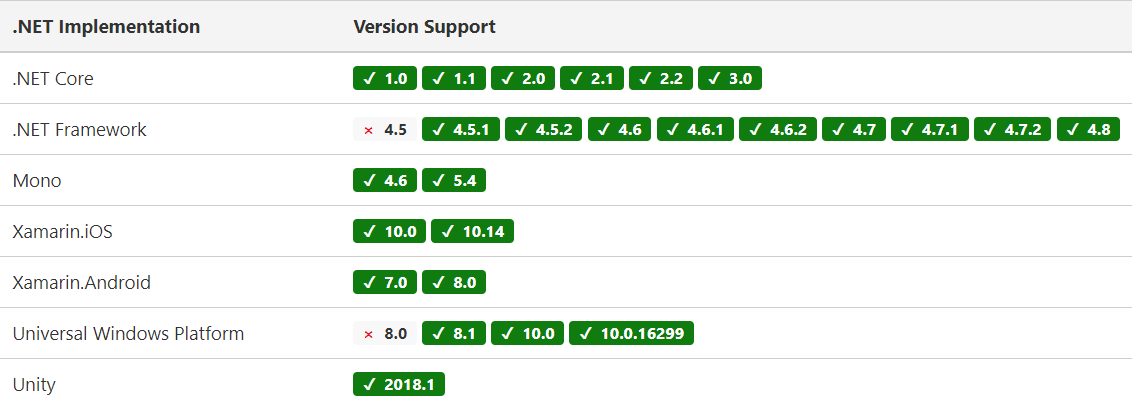Password Generator
Package Details
Install-Package PasswordGenerator

Password Generator
A .NET Standard library which generates random passwords with different settings to meet the OWASP requirements
Or click here to go to the package landing page
It is Compatible with .NET Core, .NET Framework and more. See the below chart:

Basic usage
See examples below or try them out now in your browser using Dotnetfiddle
// By default, all characters available for use and a length of 16 // Will return a random password with the default settings var pwd = new Password(); var password = pwd.Next(); // Same as above but you can set the length. Must be between 8 and 128 // Will return a password which is 32 characters long var pwd = new Password(32); var password = pwd.Next(); // Same as above but you can set the length. Must be between 8 and 128 // Will return a password which only contains lowercase and uppercase characters and is 21 characters long. var pwd = new Password(includeLowercase: true, includeUppercase: true, includeNumeric: false, includeSpecial: false, passwordLength: 21); var password = pwd.Next();
Fluent usage
// You can build up your reqirements by adding things to the end, like .IncludeNumeric()
// This will return a password which is just numbers and has a default length of 16
var pwd = new Password().IncludeNumeric();
var password = pwd.Next();
// As above, here is how to get lower, upper and special characters using this approach
var pwd = new Password().IncludeLowercase().IncludeUppercase().IncludeSpecial();
var password = pwd.Next();
// This is the same as the above, but with a length of 128
var pwd = new Password(128).IncludeLowercase().IncludeUppercase().IncludeSpecial();
var password = pwd.Next();
// This is the same as the above, but with passes the length in using the method LengthRequired()
var pwd = new Password().IncludeLowercase().IncludeUppercase().IncludeSpecial().LengthRequired(128);
var password = pwd.Next();
// One Time Passwords
// If you want to return a 4 digit number you can use this:
var pwd = new Password(4).IncludeNumeric();
var password = pwd.Next();
// Specify your own special characters
// You can now specify your own special characters
var pwd = new Password().IncludeLowercase().IncludeUppercase().IncludeNumeric().IncludeSpecial("[]{}^_=");
var password = pwd.Next();






